At Brennan & Associates, we believe that a clear understanding of your lease agreement is crucial for a smooth and worry-free renting experience. While most tenants are familiar with basic terms like rent and security deposits, it’s essential to dig deeper into the fine print of your lease agreement to uncover any hidden fees or charges that might impact your budget. In this blog, we will explore common hidden fees and charges you might encounter and provide tips on how to navigate them effectively.
Common Hidden Fees and Charges
1. Maintenance and Repair Fees
One of the more surprising aspects of some lease agreements is the allocation of maintenance and repair responsibilities. While many leases cover routine maintenance as part of the landlord’s obligations, some agreements include clauses that require tenants to pay for certain repairs or maintenance tasks. These might include:
- Repairs for Tenant-Caused Damage: If you accidentally damage a fixture or appliance, you might be responsible for the repair costs. Ensure you understand what constitutes “tenant-caused damage” and what is considered normal wear and tear.
- Routine Maintenance Costs: Some leases require tenants to cover costs associated with routine maintenance tasks, such as changing air filters or cleaning gutters. Check your lease to determine which maintenance tasks are your responsibility.
Tip: Review the maintenance clauses in your lease agreement to understand what you are responsible for. Document the condition of the property when you move in to avoid disputes over damages.
2. Utility Charges
Utility charges can sometimes be more complex than they initially appear. While some leases include utility costs in the rent, others separate them out, leading to additional expenses. Be aware of the following:
- Allocated Utility Costs: Some leases allocate utility costs based on the number of occupants or the square footage of the apartment. Ensure you understand how utility costs are calculated and billed.
- Utility Caps: In certain cases, leases may set a cap on utility usage. If you exceed this cap, you might be responsible for paying the additional costs.
Tip: Clarify which utilities you are responsible for and how they will be billed. Review any caps or thresholds for utility usage to avoid unexpected charges.
3. Administrative and Service Fees
Administrative and service fees are often included in leases but may not always be apparent. These fees cover various administrative tasks or services provided by the property management company. Common examples include:
- Application Fees: Charged when you apply for the rental, these fees cover the cost of processing your application.
- Late Payment Fees: If you miss a rent payment deadline, you may incur a late fee. Check your lease for the amount of the fee and the grace period allowed.
- Move-In/Move-Out Fees: Some leases include fees for moving in or out of the property. These might cover administrative costs or the expense of preparing the unit for new tenants.
Tip: Familiarize yourself with all administrative and service fees outlined in your lease agreement. Understand when these fees apply and how they are calculated.
4. Parking and Storage Fees
If your rental property includes parking or storage spaces, be aware that these might come with additional fees:
- Parking Fees: If parking is not included in your lease, you might need to pay for a designated parking spot. Ensure you know the cost and availability of parking options.
- Storage Fees: Some properties offer additional storage space for an extra fee. If you need extra storage, confirm the cost and any terms associated with it.
Tip: Confirm whether parking and storage are included in your lease or if they incur additional charges. Check availability and cost before committing.
5. Lease Renewal and Termination Fees
When it comes to extending or ending your lease, there may be additional fees involved:
- Lease Renewal Fees: Some leases include a fee for renewing your lease agreement. This fee might be used to cover administrative costs associated with the renewal process.
- Early Termination Fees: If you decide to end your lease before the agreed-upon term, you may be subject to an early termination fee. Review the terms for ending your lease and any associated costs.
Tip: Understand the fees related to renewing or terminating your lease. Plan ahead to avoid unexpected charges if you decide to move out or extend your stay.
How to Navigate Hidden Fees
1. Thoroughly Review Your Lease Agreement
Before signing your lease, carefully review all terms and conditions. Pay special attention to sections about fees and charges. If you’re unsure about any terms, ask for clarification from Brennan & Associates.
2. Ask Questions
If any fees or charges are unclear, don’t hesitate to ask your property management team for an explanation. Brennan & Associates is here to help you understand every aspect of your lease agreement.
3. Document Everything
Keep detailed records of all payments and communications related to fees. This documentation can be helpful if you encounter any disputes or discrepancies.
4. Plan Your Budget
Incorporate potential fees and charges into your budget to avoid surprises. Understanding the full financial picture of your rental helps you manage your expenses effectively.
Conclusion
Understanding the fine print of your lease agreement is essential for avoiding unexpected fees and charges. At Brennan & Associates, we are committed to providing transparent and comprehensive information to ensure that your rental experience is as smooth as possible. If you have any questions about your lease agreement or need further assistance, please reach out to our team. We are here to support you and ensure that you have a clear understanding of all aspects of your rental arrangement.
